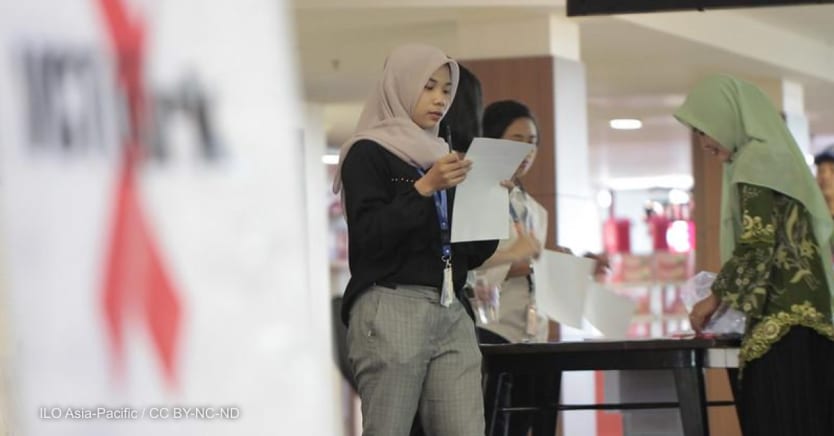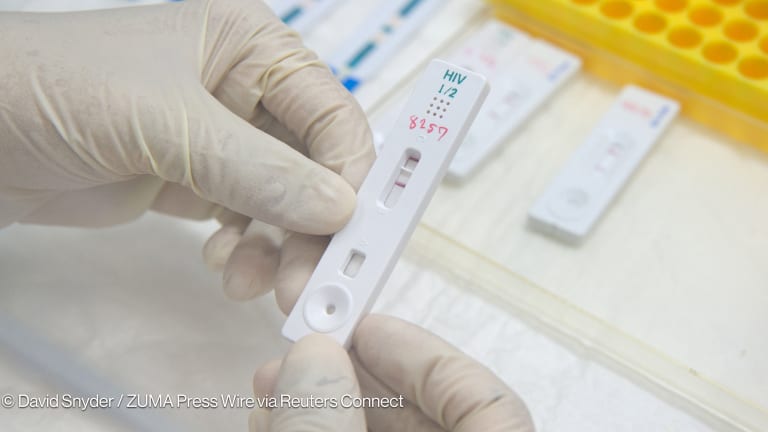
Persistent stigmatization of sexual health in Asia is hindering access to testing and treatment across the region. This is helping fuel sexually transmitted infections among adolescents and young adults in a number of countries. If left unabated, it could ruin the decades of hard work that nations in the region have invested to eradicate the epidemic.
Over the years, we have seen encouraging transformations in how gender and sexual experiences are discussed, and yet the discourse remains taboo and fragmented in Asia. As a result, there are limited conversations on important topics such as sexual health and contraception. This leaves the young and most vulnerable populations with limited resources for where to find basic information, including how and where to access peer support and the diagnosis and treatment of preventable STIs.
Stigmatizing sexual health also creates unnecessary challenges in collecting real-world data. It prevents organizations, like ours, from getting an accurate picture of the issues on the ground, which hinders our ability to assess specific needs.
In the case of HIV, the lack of robust and streamlined reporting systems poses a challenge when trying to identify, test, treat, and link patients to care. As a result, HIV is often mischaracterized as a condition of the past. However, the epidemic is a latent reality for the nearly 6 million people living with HIV in the Asia-Pacific today.
A lack of HIV reporting does not mean it does not exist. It means we have a serious blind spot we need to address — and quickly.
To prevent rising HIV infections among adolescents, we need to start facilitating an open dialogue around sexual health, and we need to give youths a seat at the table.
—According to Avert, an internationally recognized platform for HIV and sexual health information, the region saw 300,000 new HIV infections in 2019 alone. The Philippines faced the sharpest rise, reporting a 200% increase between 2010 and 2018. Its national AIDS database reported that the proportion of HIV-positive cases among young people ages 15 to 24 has nearly tripled in the past decade.
Avert also reports that Indonesia, Pakistan, Bangladesh, and Afghanistan have experienced rising rates of AIDS-related mortality, with the region registering 160,000 such deaths in 2019. In South Asia, AIDS-related adolescent deaths are estimated to have nearly quadrupled from 2001 to 2014.
As a global community, we have achieved good progress on HIV-related targets, but we clearly still have a lot of work to do. We cannot afford to reverse course.
Working with partners to amplify youth voices on the ground
Prevention programs can help reduce new infections, but we need to improve our support structures to hasten the speed of diagnosis and remove barriers to treatments. Many countries in the region are home to the youngest populations in the world, which means millions of adolescents are coming of age and need to be appropriately educated on sexual health.
We have all the tools we need to prevent them from getting infected. As we work together with grassroots organizations to address this blind spot, we are not just preventing HIV and AIDS, but we are also reducing the rate of STIs overall and unwanted pregnancies.
To prevent rising HIV infections among adolescents, we need to start facilitating an open dialogue around sexual health, and we need to give youths a seat at the table.
Through our work at Youth Against AIDS, I have the opportunity to work closely with adolescents across the region. From my experience, these are brave and passionate individuals who are highly engaged in social issues and connecting more than ever before by using technology.
I've met groups in the Philippines that are implementing different projects to educate their peers in HIV prevention. They tell me their main barriers to success are stigma and the lack of an adequate local framework that could guide and support their advocacy initiatives.
We need to work around the challenging environment and empower them. Thanks to the rise of innovative digital tools, we can now reach youths directly and give them a platform to engage.
YAA engages closely with local youth-led or -focused organizations and provides access to educational materials and experts. Our partners on the ground localize this content to ensure cultural nuances are taken into account.
Sticky Rice Love is a partner based in Hong Kong, and it is a great example of this work in motion. Its website hosts an informational page as well as an active forum where youths can feel safe and empowered to inquire, discuss, and learn from one another.
To complement our partners’ efforts on the ground, we are also developing a digital platform called FAQ YOU — Frequently Asked Questions about Sex and Love — which we envision will be the go-to resource for comprehensive sexual health education catering to youths around the world.
Ultimately, we want to improve young people's access to knowledge, protection, and support by giving them a suitable digital tool that removes existing barriers. In doing so, our goal is to support young people to lead healthy and happy lives. However, addressing this blind spot requires an ecosystem of supportive and engaged stakeholders. Accessing youths is now easy and possible, but supporting them requires a community.
Q&A: How COVID-19 is impacting HIV care in Asia-Pacific
A new survey reveals the extent to which COVID-19 is wreaking havoc on HIV care and prevention in the Asia-Pacific region. Sustained Health Initiatives of the Philippines' Dr. Katerina Leyritana lays out what that looks like in the Philippines.
This year, we are laying the groundwork for the project and looking with particular interest at Singapore, Hong Kong, and the Philippines to learn more and identify the right partners to create this ecosystem. Gilead Sciences, an existing partner we have worked with for many years, continues to support us by sharing useful information to facilitate linkage to care and improve access to valuable evidence on HIV prevention treatments.
The COVID-19 pandemic has, unsurprisingly, hampered efforts on the ground. Not only has it reallocated funding away from local programs, further diluting support from the people who need it, but it has also pushed the capacities of mental health support structures — which were inadequate to begin with — to the brink.
With youths leading the charge, the region’s leaders and our broader society need to start facilitating open dialogues around sexual health and destigmatize STIs. Only then can we see the picture clearly and ensure every person who needs support receives it.








